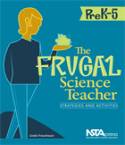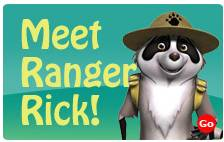 |
 |
 |
The Gulf oil spill and the environment are hot topics this summer; when students come back to school, those topics are likely to still be on their minds. Plan ahead for how to cover topics like these with this rundown of science-related resources. Submit a comment to our blog by midnight EDT on Monday, July 5, 2010, to let us know how you’re using these resources. One lucky teacher will win a prize pack of science resources, including the new books from the National Science Teachers Association that are pictured above. Post your comment today!
****************
 You’ll find all things related to the ocean at Ocean Portal, created by the Smithsonian National Museum of Natural History. The site offers lesson plans, background info, pictures and videos, plus a new e-newsletter. Click here now to “sea” more! You’ll find all things related to the ocean at Ocean Portal, created by the Smithsonian National Museum of Natural History. The site offers lesson plans, background info, pictures and videos, plus a new e-newsletter. Click here now to “sea” more! |
****************
 Give your students a chance to make a difference with a Green Across America grant from the NEA and Target. Teachers of grades K-12 can receive grants of up to $1,000 for lessons and activities to teach students about going green. Hurry, the deadline to apply is July 30. Plus check out the free Eco Boys and Girls lesson plans for PreK-grade 2. Learn more! Give your students a chance to make a difference with a Green Across America grant from the NEA and Target. Teachers of grades K-12 can receive grants of up to $1,000 for lessons and activities to teach students about going green. Hurry, the deadline to apply is July 30. Plus check out the free Eco Boys and Girls lesson plans for PreK-grade 2. Learn more! |
****************
 Looking for a one-stop solution for science resources? Visit Thinkfinity.com. Sponsored by Verizon Foundation, this site includes free activities for all grades from content partners such as Science NetLinks and National Geographic Xpeditions. Click here now to check it out! Looking for a one-stop solution for science resources? Visit Thinkfinity.com. Sponsored by Verizon Foundation, this site includes free activities for all grades from content partners such as Science NetLinks and National Geographic Xpeditions. Click here now to check it out! |
****************
 Let Ranger Rick be your guide in explaining the Gulf oil spill and other science topics to your students. At the National Wildlife Federation site www.nwf.org/oilspill/kids, students get kid-friendly info about the spill, learn about helping wildlife, find out why wetlands are important, and more. Let Ranger Rick be your guide in explaining the Gulf oil spill and other science topics to your students. At the National Wildlife Federation site www.nwf.org/oilspill/kids, students get kid-friendly info about the spill, learn about helping wildlife, find out why wetlands are important, and more. |
****************
 Here’s another grant that’s too good to pass up: K-5 teachers are invited to propose their ideas for improving science or math instruction—and to apply for grants of up to $1,000 from the Toshiba America Foundation. Applications will be accepted until October 1, 2010. Click here to learn more! Here’s another grant that’s too good to pass up: K-5 teachers are invited to propose their ideas for improving science or math instruction—and to apply for grants of up to $1,000 from the Toshiba America Foundation. Applications will be accepted until October 1, 2010. Click here to learn more! |
****************
Remember, share your thoughts about these resources (and others!) for a chance to WIN! Submit your comment today!
|
|
| Karen |
PS: There are just a few days left to submit your school supply list—including Westcott kids scissors—and receive a free surprise gift. Click here now for details!
**************** ****************


We begin our year discussing responsibilities and doing team building exercises. We also begin geography. The disaster in the gulf coast will certainly be included.I particularly like the Ranger Rick and National Wildlife Federation sites and lessons. I always do an experiment with my students to help them learn the scientific process. I plan to use the Slick Sea Spills lesson to do this. We will use collaborative reasoning to discuss who is responsible or why this happened. Should we do such deep ocean drilling?
Our science curriculum has changed completely this year. Unfortunately, the district is in dire financial straits so it is unlikely that we will be supplied with the materials needed to teach the new curriculum. Hopefully, we will be able to make it work by accessing free supplies such as the Slick Sea Spills lesson. Thanks, Mailbox!
We will use the Slick Sea Spills lesson as it can be adapted to all age groups. The older students love to work with the younger students to show them what they know and also sometimes the younger students come up with ideas the older students did not think of. Susan
Thanks for listing excellent resources for younger students who may not be able to completely understand
the enormous impact the oil spill will have on our environment.As the next generation grows into adulthood and we are educating them….we want them to take a
hands-on approach to saving the Earth’s resources.
Every lesson counts!!
The Ranger Rick kid-friendly info about the spill, learning about helping wildlife, finding out why wetlands are important…will an excellent site to use with my Second Grade class when they return to school this fall. I now have time to organize some lesson plans using all these great resources about the environment. I will definitely forwad this information to my colleagues.